by: Debrah Wright
Waco, Texas, known for its vibrant community and historic charm, has recently experienced a wave of small businesses closing their doors, leaving locals saddened and concerned about the economic impact on the city. It’s disheartening to witness these closures, prompting a crucial moment of reflection to explore the closures of iconic establishments—Sironia, Bicycle World, Fuzzy’s and O-I—and delve into the broader implications for the local business landscape. This serves as a reminder that the success of our small businesses hinges on the support of our community.
Sironia: A 20-Year Legacy Comes to an End
After more than two decades of serving the Waco community, Sironia, a beloved local boutique, recently announced its closure. This charming store, known for its unique gifts, home decor, and boutique clothing, had become a staple for residents and visitors alike.
Sironia’s closure raises questions about the challenges small businesses face in the ever-evolving retail landscape. Factors such as increased online shopping, rising operating costs, and changing consumer preferences contribute to the struggles many local businesses encounter.
Bicycle World’s Abrupt Exit from Downtown Waco
In a surprising turn of events, Bicycle World, a longstanding fixture in downtown Waco, closed its doors abruptly. This departure left cycling enthusiasts and locals puzzled, as the shop had been a go-to destination for bike sales, repairs, and community events.
The sudden closure of Bicycle World highlights the unpredictable nature of the business environment. Economic downturns, unforeseen challenges, or shifts in consumer behavior can force businesses to make tough decisions quickly. It also underscores the importance of adaptability and resilience for small businesses in today’s dynamic market.
Mike Copeland’s Insights: Fuzzy’s Future and O-I Closure Fallout
Mike Copeland’s recent column sheds light on various business developments in Waco, including the closure of O-I Glass, one of the most prominent glass bottle manufacturers around the globe, is shutting down its Waco facility after 79 years of service. This impending closure caused a lay off of an approximate 300 employees. Owens-Illinois Glass, a global glass bottle manufacturing leader, is closing its Waco facility. Copeland explores the potential ripple effects of O-I’s closure on the local economy, touching on issues such as job loss and the impact on nearby businesses.
This article also shares that Both Waco-area Fuzzy’s Taco Shop restaurants, including the location in Downtown and Hewitt Drive have closed. Both area locations have now closed, including the Baylor student frequented on University Parks Drive that often seemed so lively, with patrons spilling onto the patio.
The interconnectedness of local businesses becomes apparent in the wake of closures like Fuzzy’s and now Bicycle World. Small businesses often rely on each other for support and foot traffic, creating a delicate ecosystem. Understanding and addressing the challenges faced by individual businesses can be crucial in preserving the overall health of the local economy.
Looking Forward: Challenges and Opportunities
While the closures of Sironia, Bicycle World, Fuzzy’s and O-I may paint a challenging picture for Waco’s small business community, it’s essential to recognize the opportunities for growth and revitalization. Initiatives such as community support, strategic partnerships, and adapting to changing consumer preferences can play a vital role in fostering a resilient local business landscape.
Small businesses are the heartbeat of our community, contributing directly to our local economy. They are more than just storefronts; they are the livelihoods of the people they employ and the families they sustain. It becomes particularly challenging when a multitude of factors stack against our small business owners.
As Waco navigates these shifts, community members, local leaders, and business owners must collaborate to address the underlying issues and work towards creating an environment where small businesses can thrive. The stories serve as reminders of the resilience required to weather the storms of the business world, ultimately shaping the future of Waco’s entrepreneurial spirit.
Let’s challenge the narrative and be the change we want to see in Waco. Small businesses are the backbone of our community, giving back in numerous ways. Now, more than ever, it’s crucial to rally behind our small business leaders. Be the Waco you envision, and let’s show our support.
Editor: In honor of Women’s History Month, we are featuring interviews with local women leaders. These pieces were written by Baylor University students from the Department of Journalism, Public Relations, and New Media.
By Lakesyn Melia
Veronicka Thompson-Smith came from a small town in Oklahoma to Waco in fall of 2002 as a freshman undergraduate student at Baylor University. The city has made quite the impression on her, as the longest she’s been away since her arrival was a six-month internship.
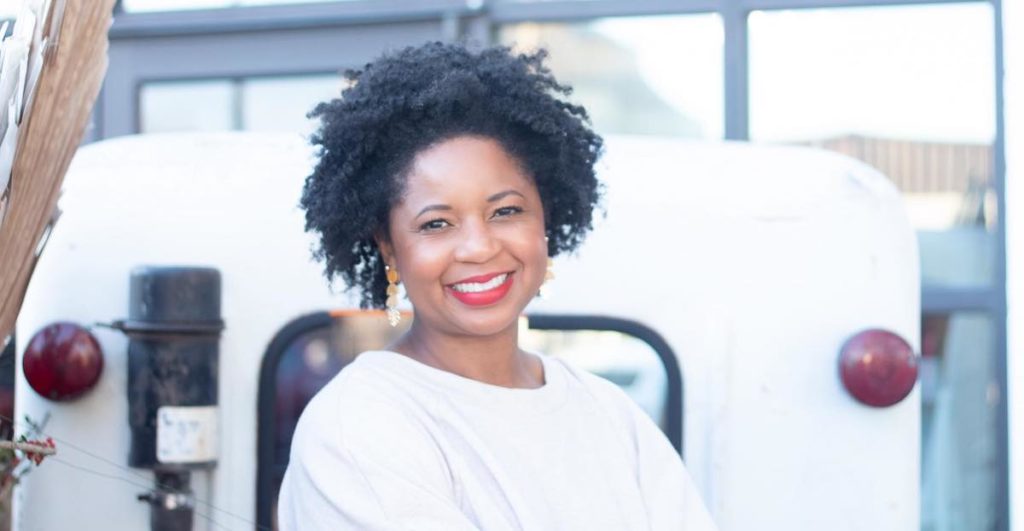
After graduating, she spent 10 years working in the admissions office for the university. In January this year, she accepted a role as an executive assistant at Magnolia. She is also a board member of the Waco Downtown Farmers Market and the Amberley Collaborative, a local nonprofit that works to strengthen support systems for individuals who face challenges, such as disabilities, in the community.
Thompson-Smith also leads the Waco chapter of TuesdaysTogether, an organization created for creative entrepreneurs to connect and to foster community over competition.
“One of the reasons why I love Waco is just the opportunities,” she said. “When I came here in 2002, Waco definitely wasn’t what it is now. You just didn’t have the growth you have now.”
As an entrepreneur, Thompson-Smith said she has seen Waco become a hub for people wanting to start their own businesses. She said she believes the timing was just right for the city and Wacoans. The emergence of the Magnolia business has helped, but what the local residents had to offer was the biggest contributor.
“I’ve seen it go from no food trucks at all to now: Union Hall, Food Truck Park, and all these different generations of Waco and even Baylor,” she said.
The city of Waco has seen a multitude of locally-owned businesses emerge in the past few years, and Thompson-Smith has been a major part of two of them. She started her own business, Flower and Ink Designs, in 2017 and took the position as community director of WacoWork in 2019.
After graduating from Baylor with a degree in apparel design, she did not pursue her creative skills until she created Flower and Ink Designs. She has seen support through the Waco community throughout her 18 years living here.
One of the aspects of Waco that Thompson-Smith appreciates is the size. She said that being able to see people you know wherever you go is comforting, and the community is special. She spent the past few months helping as treasurer for Councilwoman Kelly Palmer’s campaign, an opportunity only a city like Waco would make so accessible.
Through her involvement in the community, Thompson-Smith has seen Waco in a completely different light. The business opportunities have helped her build relationships with people around her and participate in the continuing growth of the city. Her contributions are just one example of how someone got involved and enjoyed every part of it.
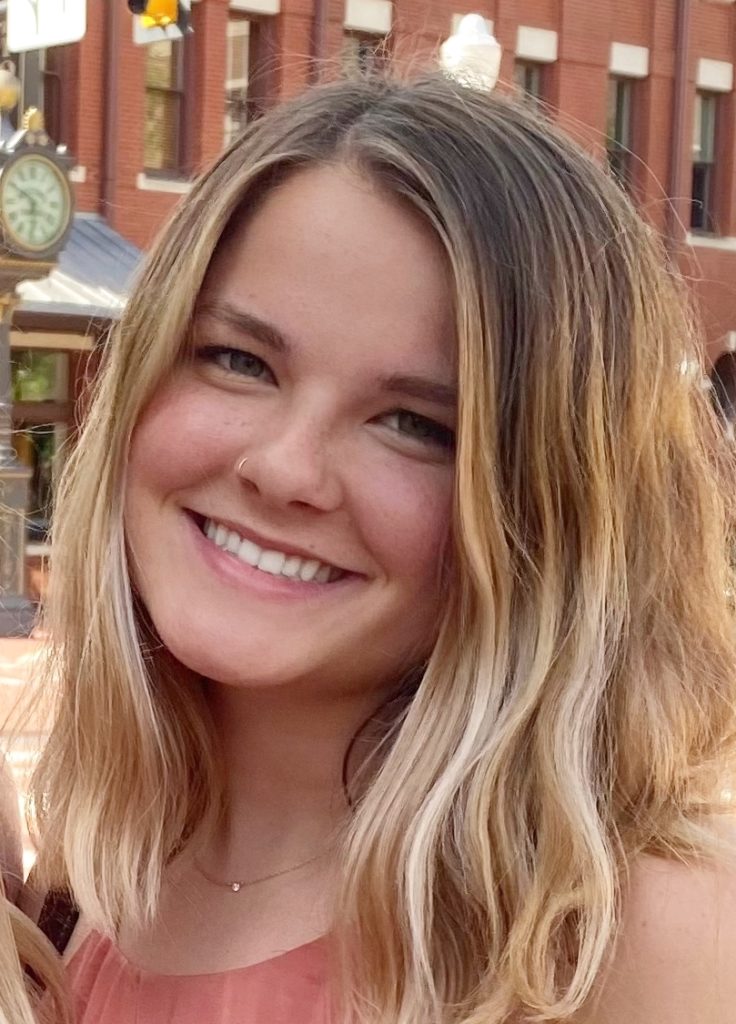
Lakesyn Melia is a sophomore political science and public relations student at Baylor University, originally from Franklin, Tenn.
The Act Locally Waco blog publishes posts with a connection to these aspirations for Waco. If you are interested in writing for the Act Locally Waco Blog, please email Ferrell Foster at [email protected].
(This article is about applying lean startup methods to Main Street or traditional small businesses and features McLennan Small Business Development Center’s involvement in the SBA’s Lean for Main Street Training Challenge. McLennan SBDC is now scaling its pilot regionally and offering the next Introduction to Customer Discovery cohort at the Addison TreeHouse, in Addison, Texas, from January 10 – 31, 2017. For more information and to apply, click here.)
By Jane Herndon
Too often, entrepreneurs fall in love with their invention or business idea and assume everyone else will love it, too.
Full of confidence, they dive immediately into execution with little afterthought. They make a significant up-front investment in a brick-and-mortar location, buy equipment, hire staff and open their doors. Ready, set, go!
Some might even approach it more thoughtfully and actually write a traditional business plan. Legal structure? Check. Marketing plan? Check. Financial projections? Check.
Though very different approaches, both focus on the tactical “can I build this product or business?” versus the strategic “should I build it?” But what if you build something nobody wants?
More businesses fail from lack of customers than from lack of capital or marketing or product failure. Only half of all establishments survive five years or longer. (1)
Get Out of the Building
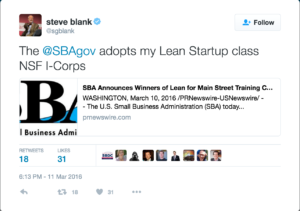 To address uncertainty and improve the odds of business success, Steve Blank, serial entrepreneur and father of the Lean Startup movement, and his protégé, Eric Ries, have pioneered an evidence-based approach to entrepreneurship. What the scientific method did for accelerating scientific breakthroughs, lean startup promises to do for business innovation.
To address uncertainty and improve the odds of business success, Steve Blank, serial entrepreneur and father of the Lean Startup movement, and his protégé, Eric Ries, have pioneered an evidence-based approach to entrepreneurship. What the scientific method did for accelerating scientific breakthroughs, lean startup promises to do for business innovation.
And it does so by turning the decades-old formula for writing a business plan on its head. Instead of diving in and/or launching one’s company with a business plan full of unproven assumptions (guesses), it urges entrepreneurs to “get out of the building” and in front of a volume of prospective customers to gain first-hand insight into their problems, needs and motivations. This customer-centric approach emphasizes rapid experimentation over elaborate planning, stakeholder feedback (facts) over guesswork, and placing “small bets” over big, up-front investment. It addresses the question: “is this a business worth pursuing?”
Today Blank’s lean startup class is the world’s leading pre-accelerator program. It is also the core curriculum of the National Science Foundation’s (NSF) Innovation Corps, known as I-Corps™, the nation’s premier, federally funded entrepreneurship program. The NSF uses lean to help scientists commercialize or turn their ideas into businesses.
Last year, President Obama announced plans to scale up the National Science Foundation I-Corps program with new and expanded Federal agency partnerships, the U.S. Small Business Administration (SBA) among them. McLennan Small Business Development Center is honored to participate in the first wave of the SBA’s I-Corp-inspired innovation effort.
Everybody Has a Plan Until They Get Punched in the Mouth
The first piece of advice most would-be entrepreneurs get is “go write a business plan.” And it’s true if you need a bank loan. It’s also true that few business plans survive first contact with customers. Or, as Mike Tyson once said about his opponents’ prefight strategies: “Everybody has a plan until they get punched in the mouth.”
Unlike web startups, brick-and-mortar businesses require considerable up-front financial investment just to open their doors – a time when uncertainty is highest. Creating business plans and financial models based on secondary research and guesses – without testing these assumptions first – can waste valuable time, lead to over-investing and create a false sense of security. The better up-front investment is to do some reality checks with stakeholders to find out “you don’t know what you don’t know” and whether you’re even solving a real need.
Finally, small business owners, and the people who love them, have a lot of skin in the game. The majority bootstraps their companies with their own funds or those of friends and family. According to the SBA site referenced earlier, the most common source of capital used to finance small business startup and expansion is personal or family savings (21.9%), followed by business profits and loans (5.7%). Simply put, when small businesses succeed, communities thrive. When small businesses “get punched in the mouth” and fail, families, communities and local economies suffer.
Lean for Main Street Pilot
While lean resources and programs are commonly available online and through accelerators, universities and events like Startup Weekend, they’ve been geared to tech startups. Small business owners and first-time entrepreneurs may be less aware of lean methods and more importantly, how to effectively apply them.
To this end, the U.S. Small Business Administration’s (SBA) Office of Entrepreneurial Development created the Lean for Main Street Training Challenge to bring the benefits of lean methodology to traditional “Main Street” businesses. The purpose of the challenge is to develop and pilot a variety of lean innovation curricula for small businesses and scale these teaching innovations to a wider audience. In January, they conducted their own lean experiment with the national SBA resource partner network by launching the prize competition on the federal government’s open innovation platform, Challenge.gov.
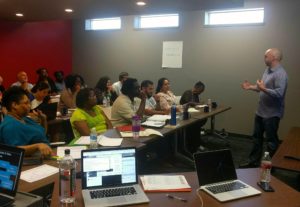 In March, five winners were announced nationwide, including McLennan SBDC. Three weeks after the award announcement, Strategist Chris McGowan and I joined the other prize winners from San Francisco, metropolitan DC, Pittsburgh, and Mississippi to observe a national I-Corps program in Washington, DC for a 6-week train-the-trainer program.
In March, five winners were announced nationwide, including McLennan SBDC. Three weeks after the award announcement, Strategist Chris McGowan and I joined the other prize winners from San Francisco, metropolitan DC, Pittsburgh, and Mississippi to observe a national I-Corps program in Washington, DC for a 6-week train-the-trainer program.
After additional mentorship from Max Green, national I-Corps instructor based in Austin, we launched the Introduction to Customer Discovery short course (aka Customer Discovery Workshop) in August. We sought to include entrepreneurs and social innovators not typically exposed to lean startup methods and cohort-based learning. Applicants were encouraged to apply as 2-3 member teams; we selected a group of 8 teams, called a cohort. The majority of teams were women- and minority-led.
The Introduction to Customer Discovery short course is designed to help pre-venture, startup and early-stage companies establish product-market fit and improve their odds of success. Ideal candidates are those who either have an idea for an innovative new business or who’ve recently started a promising business, but aren’t getting the customer traction they anticipated.
We use a “flipped classroom” approach. All coursework is done prior to class to allow for participant-led presentations, inquiry and direct feedback from instructors. On the opening day, teams present their initial business thesis and assumptions about customer segments and value propositions. They are tasked with interviewing 10 or more potential customers every week to determine whether what they’re offering solves a real market need.
While the class runs over a three-week period, participants attend only two days of classes – the opening and closing workshop. This means, that after the opening workshop, teams “get out of the building” and work on their own schedule, talking to potential customers about their business problems and needs. Team members record their interview findings online and check in remotely with instructors via webinar for another round of instructor feedback at the halfway point. The group reconvenes on the final day where they present their findings, next steps and “lessons learned.”
Since we have limited time, instructors will push, challenge, and question in order to accelerate insight and learning cycles. Exchanges are direct, open, and tough. This approach may seem harsh or abrupt, but teaches how to challenge your own thinking and bias, and appreciate that as a business owner, you will need to learn and evolve faster than ever imagined.
Finding out if your product/service is a business opportunity worthy of pursuit – based on a volume of customer feedback – is considered “success.”
A McLennan SBDC client sums up their short course experience this way:
“This was a tectonic shift in our approach and understanding of what we have to do to succeed… The combination of the lean startup content from Steve Blank, etc., plus the brutally honest & challenging feedback is really powerful…it’s in a league of its own…”
Takeaways
- Unanticipated “punches in the mouth” can and will impact your business plan. The lean approach helps manage this uncertainty with an evidence-based, customer-centric approach to entrepreneurship.
- Small businesses are a creative entrepreneurial force and the backbone of our economy. Lean methods can catalyze economic growth and innovation by helping ventures launch more quickly, cheaply and with less risk.
- An entrepreneurial development program is only as good as the number of people it can reach. Successful ecosystem partnerships are key to taking lean innovation mainstream.
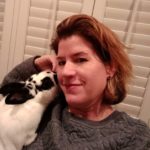 Jane Herndon grew up as a child laborer in the family business and was bitten by the entrepreneurship bug early. A technology industry veteran, she retired from a glamorous business-modeling career to work with the SBDC. When not serving as a business mentor, she can be found down the rabbit hole with Buckminster Fuller, her rescue rabbit. For bona fides, see LinkedIn. Contact Jane at [email protected], if your organization is interesting in partnering to bring lean startup methods to local entrepreneurs and innovators.
Jane Herndon grew up as a child laborer in the family business and was bitten by the entrepreneurship bug early. A technology industry veteran, she retired from a glamorous business-modeling career to work with the SBDC. When not serving as a business mentor, she can be found down the rabbit hole with Buckminster Fuller, her rescue rabbit. For bona fides, see LinkedIn. Contact Jane at [email protected], if your organization is interesting in partnering to bring lean startup methods to local entrepreneurs and innovators.
The Act Locally Waco blog publishes posts with a connection to these aspirations for Waco. If you are interested in writing for the Act Locally Waco Blog, please email [email protected] for more information.
Notes:
(1) U.S. Small Business Administration, Office of Advocacy, Frequently Asked Questions, https://www.sba.gov/sites/default/files/advocacy/SB-FAQ-2016_WEB.pdf (2016)
(Act Locally Waco loves Waco area entrepreneurs! For more posts about local entrepreneurs, please click here: Entrepreneurs of Waco. If you would like to nominate a Waco entrepreneur to be profiled, please email [email protected]. – ABT)
By Penni Litzau
“In my work as a business advisor for the Small Business Development Center I enjoy working with all types of small business owners every day. From time to time I run across a true craftsman/craftswoman and the business is only necessary to provide the framework for them to share their craft with the world. Penni is one of those craftswomen.” – Tim Holtkamp, Business Advisor, McLennan Small Business Development Center
Hello, I’d like to introduce myself! My name is Penni Litzau, and, many years ago, I fell into a love affair with the art of custom framing. I first became acquainted with custom framing in the mid-80’s, and it opened up a whole new world for me. I had never even heard of custom framing, didn’t know what it was. As far as I knew, people just bought pictures and they were already framed in some magical way.
Up until that time, my sum total of work experience had been in daycare and fast food. Even though I enjoyed working with customers and the direct contact with the public, I had become less than excited about things like inordinate amounts of grease, and I remember coming home feeling covered in it.
So, I began the hunt for a new job. I knew I was intrigued by the world of retail, and that became my new emphasis. I remember applying for a wide variety of jobs—everything from selling candles to high-end clothing sales. Then, I saw an ad at the employment commission for seasonal work at Old America in Clute, Texas.
When I submitted my application for the job, I was asked if I knew how to read a tape measure. I said I could, and after a few successful tries at measuring an assortment of objects, the job was mine. Though I didn’t know it at the time, this “seasonal” work would grow into full time.
From that point on, I was hooked. I was amazed at how many different directions you could follow to create a piece of art. I was mesmerized by the entire process—from working with each individual object and using my own imagination to presenting every new customer with a final product that was displayed for them in the best way possible. I was giving something precious—a memory, a photo, handmade artwork, sometimes even a shadow box—that could be enjoyed for years to come.
In my very first encounter with the art of custom framing, I questioned the customer as to what thoughts they had and what direction they wanted to go with their print. I was not prepared for the response. “Well, you’re the expert; why don’t you tell me?” My initial thought was that they were my first customer and I wasn’t sure I would be able to give them what they expected.
Right then and there, I made a decision. I figured if I acted like I’d been doing this for years, it would create a level of trust in me. And, boy, did I want this to work, both for them and for myself. I took the work in hand and prayed that I would be successful in making them happy and in creating something special.
Happily, my first run at it turned out to be exactly what they were looking for. It was a wonderful experience for them and for me. From then on, I knew that, somehow, I had an innate understanding of what it took to create something like this. Most importantly, it was something I could be proud of.
In the end, I had to give up that job because I had to move away. There followed a succession of years in which I had to leave my new-found love for a time and work once again in fast food. I had to pay my bills, and at that time, framing only paid minimum wage, regardless of one’s level of expertise.
In all affairs of the heart, there are many twists and turns before the happy ending, and mine was no different. I explored numerous other paths, seeking education and better pay. I made a move to Waco, Texas, to be closer to my family. Eventually, I married, and my husband, Stephen, and I began a blended family.
After working several years pursuing a potential career in electronics, I found I was still unhappy due to the lack of artistic expression. My husband and I decided that I would leave work for a period of time and spend more time with our growing family. Later, after the kids went back to school, I returned to the work field.
Throughout the years, I had longed to return to framing, so I applied to the two chain stores with frame shops in Waco, Michaels and Hobby Lobby. Miraculously, when I walked into Hobby Lobby and told them I had a background in framing, they told me there was a position needing to be filled in their frame shop. I got hired on the spot!
For the next sixteen years, I worked in framing, and, finally, realized it had become my passion. After all these years, I found myself not only loving what I was doing but slowly progressing to a better living wage. Beyond all doubt, framing was the perfect career I wanted to pursue.
So now, the time has come to end one story and begin the next. It is an exhilarating, almost breathtaking experience to start my own business doing what I love the most. But, you know what they say, “If you do what you love, and you will never work a day in your life.”
I’m looking forward to this new, next journey—that of helping people preserve their special artwork, personal memories and experiences in the best way possible. Through the use of specialized framing techniques and artistic expression, I know I can make your next memory one that will last you a lifetime.
Penni Wise Custom Framing is located at 7033 Sanger Avenue in Waco, Texas, right on the access road of Highway 6. My hours of operation will be Tuesday through Friday 9:30 AM to 5:30 PM and Saturday 10:00 AM to 2 PM. I will be open the first week in September with an official Grand Opening October 1st, 2016. Please come and visit. I would love to meet you and together create a thing of beauty.
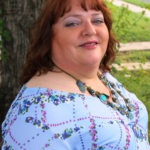 Penni Coleman Litzau was born in San Antonio, Texas and has spent the majority of her life in Texas. She attributes, in part, her eye for detail to being raised by a mother who lost her eyesight due to Multiple Sclerosis. Penni became her “mother’s eyes” and described everything she saw in great detail and vivid color. In 1996, she moved to Waco, Texas to be closer to her mother, sister, and family. A year later, Penni met her husband Stephen Litzau, the Millwork Supervisor and longtime master craftsman for CM Trautschold. They blended their family in 1998. You can contact Penni through email at [email protected] , www.penniwisecustomframes.com , or facebook.
Penni Coleman Litzau was born in San Antonio, Texas and has spent the majority of her life in Texas. She attributes, in part, her eye for detail to being raised by a mother who lost her eyesight due to Multiple Sclerosis. Penni became her “mother’s eyes” and described everything she saw in great detail and vivid color. In 1996, she moved to Waco, Texas to be closer to her mother, sister, and family. A year later, Penni met her husband Stephen Litzau, the Millwork Supervisor and longtime master craftsman for CM Trautschold. They blended their family in 1998. You can contact Penni through email at [email protected] , www.penniwisecustomframes.com , or facebook.
(Act Locally Waco loves Waco area entrepreneurs! For more posts about local entrepreneurs, please click here: Entrepreneurs of Waco. – ABT)
By Kathy Carr
“It makes me laugh thinking how a guy who grew up in the suburbs of Dallas now owns a farm… but I love what I do.” – -Gib Reynolds
Salads have become the epitome of healthy eating these days. There’s nothing quite like digging into a big bowl of veggie-filled goodness. Toss in some grilled chicken and even the carnivorous can reap the health benefits of the bountiful greens.
But with recalls becoming more prevalent, there’s an understandable lack of trust in the safety of supermarket produce. Wouldn’t it be nice if there was a way for farmers to safely grow leafy greens without harmful pesticides and exposure to all of the unhealthy yucks that make people sick?
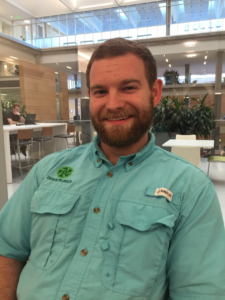 Gib Reynolds and his dad have done just that with Urban Produce. Together, this father-son duo have founded a large scale hydroponic lettuce farm where everything is controlled and grown indoors. The greens are grown “under glass” on floating rafts in nutrient rich ponds. This method provides a pesticide-free environment, and also eliminates the possibility of toxins and other environmental junk from making their way to the growing greens.
Gib Reynolds and his dad have done just that with Urban Produce. Together, this father-son duo have founded a large scale hydroponic lettuce farm where everything is controlled and grown indoors. The greens are grown “under glass” on floating rafts in nutrient rich ponds. This method provides a pesticide-free environment, and also eliminates the possibility of toxins and other environmental junk from making their way to the growing greens.
It’s quite an innovative idea. The funny part is that Gib grew up a city-boy in Richardson, Texas. He’s an Eagle Scout who flew model rockets competitively all around Eastern Europe. When Gib came to Baylor in 2008, he did study Entrepreneurship as an undergrad, but farming wasn’t his end goal.
Gib was interested in developing a portal that could connect investors and entrepreneurs, something similar to the Baylor Angel Network (BAN) where investors provide early-stage capital to entrepreneurs with business plans. Gib was highly involved in BAN as an undergrad and even became an analyst, so this seemed like a perfect fit.
After his Baylor undergraduate work, Gib continued his studies in the MBA program at Acton. He tossed around a couple of business ideas, but as he researched controlled environment agriculture and food production Gib realized there was a unique opportunity. And the idea for Urban Produce became a reality.
Gib’s long-term goal with Urban Produce was to build a huge lettuce company. Go big or go home is an underlying motto for all entrepreneurs, but with ninety-eight percent of lettuce in the US coming from California building a dominating lettuce company is a daunting mission. But with his self-proclaimed stubborn nature, Gib dug in his heels for the long haul.
Before any produce could even be sold, it was imperative for Urban Produce to receive certification for GAP/GMP (Good Agriculture Practices and Good Manufacturing Practices). The certification provided a layer of accountability to help customers trust this new startup company.
One of the initial challenges Urban Produce faced was finding those trusting customers and ensuring that distribution processes were in place to get the greens to customers in a timely fashion. Careful not to bite off too much too quickly, father and son built a loyal customer base one customer at a time. Confident in their product, the duo simply lets the lettuce do the talking. And the lettuce has been talking…a lot. So much so, that Urban Produce has expanded distribution beyond the confines of the Waco area. With regular deliveries to San Antonio and Houston, this lettuce is outright screaming.
Urban Produce trudges through the normal layers of regulations and inspections that come with being a food producer. Inspections and annual audits from the USDA help ensure proper growing and handling techniques. Gib feels that food safety is a paramount concern, so while the regulations may be at times be an annoyance, it’s all necessary in order to keep food safety on the front burner.
All-in-all, the proof is in the pudding… or maybe it’s better said, the proof is in the lettuce. No herbicides – no insecticides – no pesticides, but loads of tasty deliciousness. Gib’s hopes of putting Waco on the map as the “Lettuce Capital of Texas” may not be too far off.
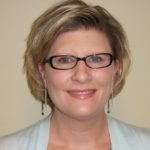 Kathy Carr is a long-time Wacoan. She’s a Baylor grad who just couldn’t’ get enough of the university so she now works there too. She loves the beach, a bowl of good ice cream and Netflix binges.
Kathy Carr is a long-time Wacoan. She’s a Baylor grad who just couldn’t’ get enough of the university so she now works there too. She loves the beach, a bowl of good ice cream and Netflix binges.
The Act Locally Waco blog publishes posts with a connection to these aspirations for Waco. If you are interested in writing for the Act Locally Waco Blog, please email [email protected] for more information.
by Cuevas Peacock
I fell in love with Waco somewhere in between Elm and Austin Avenue. Perhaps it was while grabbing a bite to eat at Xristos Café, and then dessert at Hey Sugar. Maybe it was while getting a hair cut at the Jockey Club before visiting Suit City in hopes of finding a fresh outfit to compliment my fresh cut. Or it could’ve been at the Magnolia Market amongst the thousands of visitors who had traveled miles upon miles to Waco as a result of their appreciation for a loving couple dream come true. My love for the city only grew as I expanded outside of the downtown footprint and began spending my Saturday afternoons enjoying the Bistec a La Mexicana at Rufi’s Cocina topped off with ice cream from La Nueva Michoacana. While there are number of factors resulting in Waco holding a special place in heart, the most significant will forever be its entrepreneurs.
Our city is home to a collection of go getters who refuse take for no for an answer as they work to achieve their dreams of ownership. It is a community of business owners I have grown to appreciate during my AmeriCorps VISTA year of service with City Center Waco, and that the organization seeks to strengthen. In all professions, there is an amount of training one must undergo to obtain the knowledge needed to reach the desired level of success. Doctors go to medical school; lawyers go to law school, however far too often the only training entrepreneurs receive are the lessons learned after failing. Recognizing the opportunity to provide additional readiness programs for small business owners, City Center Waco is excited to announce its adoption of a new entrepreneurial training program, the Workshop in Business Opportunities (WIBO).
WIBO is based on the idea that people with an entrepreneurial spirit can be taught how to start and grow a profitable business through a curriculum designed to provide knowledge, create networks and build capacity to access capital. The program is open to anyone, but specifically targets low-income, underserved communities including minorities, women, veterans, and the formerly incarcerated. Since its creation in 1966 WIBO has developed nearly 17,000 entrepreneurs resulting in the creation of almost 35,000 jobs in cities across the country. 75% of new businesses are up and running within a year of completing the program. For those already in business, 42% see an increase in revenue after graduating. Knowing of the program’s success nationwide, City Center Waco felt charged to bring the opportunity to our local entrepreneurs.
WIBO participants are educated by seasoned industry professionals on a range of topics relevant to the success of their business. What’s most exciting about the program is its track record in increasing a business’s ability to keep its doors open. Graduates were almost three times as likely to still be in business after five years, compared to those who fail to go through a similar training. Through the adoption and implementation of WIBO, City Center Waco will assist McLennan County area small business owners and budding entrepreneurs obtain financial success by starting, operating, and building successful businesses that develop economic power, provide jobs and improve communities.
For more information on the Workshop in Business Opportunities and ways to sign-up or contribute as a sponsor please contact City Center Waco at 254-754-8898 or via email at [email protected]
 Cuevas Peacock is a community builder with dreams of becoming a poet, for he was once told that they are life’s last true teachers. Hailing from Port Arthur, the only place where oil and water mixes, Cuevas serves as an AmeriCorps VISTA with City Center Waco. Through this role he is able to focus on two of his greatest passion’s neighborhood association’s and entrepreneurs.
Cuevas Peacock is a community builder with dreams of becoming a poet, for he was once told that they are life’s last true teachers. Hailing from Port Arthur, the only place where oil and water mixes, Cuevas serves as an AmeriCorps VISTA with City Center Waco. Through this role he is able to focus on two of his greatest passion’s neighborhood association’s and entrepreneurs.
Act Locally Waco blog publishes posts with a connection to these aspirations for Waco. If you are interested in writing for the Act Locally Waco Blog, please email [email protected] for more information.
(Note: This post is part of a series called “Entrepreneurs of Waco.” The series is collaboration between the McLennan Small Business Development Center (SBDC), the Professional Writing program at Baylor University, and Act Locally Waco. The McLennan Small Business Development Center offers technical assistance, business mentoring, training, and resources for all stages of small business. For more information, visit their website: www.mccsbdc.com. To see all the posts in this series, click here: Entrepreneurs of Waco. – ABT)
By Casey Froehlich
Some people spend years trying to discern their vocation, but Tonja Carpenter found herself fulfilling hers before she even knew it had a name. For fifteen years she helped mothers in her neighborhood and church community deal with life after giving birth. Then, after years of doing the work… “I found out that it wasn’t just my idea, it was somebody else’s idea already. That there was such a thing as a ‘postpartum doula’… I had never heard of that before.” She quickly got certified with the largest doula training service she could find, DONA International. From DONA she received training in “postpartum, adjustment, newborn characteristics, care, feeding, and development, and the promotion of parent-infant bonding. ” Now Tonja has her own business serving families of newborns, “Postpartum Doula Services of Waco.”
After graduating from Baylor in 1991 with her with a BBA in Finance, Tonja went on to work in the insurance industry. After getting married she traded that career for one that was even more demanding: full-time mother. Tonja and her husband Vince went on to give birth to five wonderful children who now range in age from thirteen to twenty-one.
The births of her first three children were “peachy” according to Tonja; the fourth was a different matter. Her labor stalled, eventually going on for ten hours (especially long when compared to her third birth that lasted only an hour and a half). After she gave birth she hemorrhaged which caused issues with her lactation. “I ended up just falling into a deep depression for six months,” she said of her time after birth. Luckily she had the support of her community.
“The women of my community, they weren’t called ‘postpartum doulas’ then, but they surrounded me and my whole entire family. For weeks and months they would come in and clean my house and call every day, ‘ok how ya doing?’ — bringing meals, talking through, helping with kids…It was a terrible time for my family, but it was great in that my community surrounded me and lifted us up and carried us through.”
Though that time in her life was fraught with pain and fear she still says she wouldn’t trade her experience for the world because “having the postpartum depression with my fourth child has really helped me have a greater perspective on what moms would be dealing with that are suffering with postpartum depression, and I can help them to recognize the early signs of it because I experienced it myself… It adds a great dimension to by business because I cannot just sympathize with the moms and the families but I can truly empathize because I’ve been there.”
And, it isn’t only the mother who’s affected by the birth of the new baby. “Researchers are finding that dads can suffer from postpartum depression as well because they feel just overwhelmed with what’s happening. Because it’s not just the mom, yeah the mom is the one that’s actually pushing the baby out, but she didn’t get that baby on her own… And so her partner, or her husband, or whoever, they have emotions too,” and these emotions need processing too Tonja says.
“It’s very fluid with each family and each day because every family has different needs. So really there is no typical day, it just depends on what is the need at the moment that the family needs to be taken care of….” Daily tasks range from cooking and cleaning to grocery shopping and accompanying mothers to their newborns’ doctor’s appointments. “I guess it starts with ‘how are you doing this morning?’ and then we go from there” she says with a smile.
Tonja charges for her services on a sliding scale. Doula services are typically range from seven-hundred to nine-hundred dollars for six weeks of care consisting of two to three hour shifts depending on the families’ needs. She also does pro-bono work with CareNet for mothers who simply cannot afford her services.
Breastfeeding support is one of Tonja’s specialties. “Not all postpartum doulas are breastfeeding counselors. I just happen to be an accredited breastfeeding counselor with Breastfeeding USA. I think it enhances my ability as a doula to better serve my clients,” she says. Tonja also helps run the Breastfeeding USA, Waco chapter that meets on Friday mornings at My Little Playplace, 10:30-11:30 am. It’s a free support group/cafe for breastfeeding moms. The breastfeeding counselors of this chapter will also do home visits for moms in the Waco city limits for those who can’t make it to the Friday meeting. “Being a breastfeeding counselor is also a part of the steps I am taking as I work towards my IBCLC credentials,” Tonja explains. “It stands for International Board Certified Lactation Consultant. Prayerfully, I will take and pass my board exam in April 2017.”
One memory of a client stands out in her mind: a father unsure of how to hold his newborn infant. “He was a first time dad and he had never been around babies ever, and it was just so precious watching him figure out how to hold the baby.” She laughs as she demonstrates the father’s technique – more like holding a football than a baby. “So I taught him how to do skin to skin with his baby, and you know he just fell in love—he was already in love with his baby but even more so. He was like, ‘aw this is great’ and he just wanted to hold the baby all the time! … Just seeing him learn how to interact with his baby and make it comfortable, and not be scared to touch his baby and not be uncomfortable with his baby that was beautiful.”
What is truly beautiful is the passion and compassion that Tonja Carpenter has for the families and mothers that she serves. Her wealth of experience, kindness of heart, and willingness to serve makes her the perfect fit for any household seeking aid after childbirth. Tonja’s bubbly personality and readiness to laugh is just what the doula ordered for families struggling with the post-birthing experience.
 The entrepreneur…Tonja Carpenter, PCD (DONA), BC is a graduate of Baylor University with a degree in Finance. After a brief stint in the insurance industry, she married, raised and homeschooled her five children for 15 years while serving, mentoring and supporting young mothers in her church and community. She’s been married for 22 years and is a Certified Breastfeeding Counselor with Breastfeeding USA and a Postpartum Certified Doula with DONA International.
The entrepreneur…Tonja Carpenter, PCD (DONA), BC is a graduate of Baylor University with a degree in Finance. After a brief stint in the insurance industry, she married, raised and homeschooled her five children for 15 years while serving, mentoring and supporting young mothers in her church and community. She’s been married for 22 years and is a Certified Breastfeeding Counselor with Breastfeeding USA and a Postpartum Certified Doula with DONA International.
 The writer…Casey Froehlich is a senior English major at Baylor University with a minor in Creative Writing. She hopes to one day work in publishing as an editor.
The writer…Casey Froehlich is a senior English major at Baylor University with a minor in Creative Writing. She hopes to one day work in publishing as an editor.
The Act Locally Waco blog publishes posts with a connection to these aspirations for Waco. If you are interested in writing for the Act Locally Waco Blog, please email [email protected] for more information.
(Note: This post is part of a series called “Entrepreneurs of Waco.” The series is collaboration between the McLennan Small Business Development Center (SBDC), the Professional Writing program at Baylor University, and Act Locally Waco. The McLennan Small Business Development Center offers technical assistance, business mentoring, training, and resources for all stages of small business. For more information, visit their website: www.mccsbdc.com. To see all the posts in this series, click here: Entrepreneurs of Waco. – ABT)
By Sarah Lesikar
If a music box, a scooter and a rocking horse all had a baby, it might look something like the BearBack hippotherapy device. Sitting on four wheels, it is a black metal box with a rounded cushion, like a half barrel, on top and handle bars in the in front. A window on the side of the black box allows you to see what’s inside: gears and pulleys and cams. The handlebars will offer extra support for a potential rider, something that will be much appreciated when those gears, pullies, and cams are set in motion…because riding the “Bearback” is going to feel just like riding a horse.
Dr. Brian Garner, a humble, soft-spoken engineer, is the founder of Chariot Innovations, the company that is working to produce the “Bearback.” He can be found at the Baylor Research and Innovation Collaborative (BRIC), usually surrounded by BearBack parts and models.
The adventure began with Garner’s research which compared the motion pattern produced by the gait of a horse to that of a person. Using the same technology that captures human motion for movies or video games, markers placed strategically on horses and riders provided Garner with full 360-degree motion patterns of both walking horses and walking people. It turns out that these patterns are remarkably similar.
Garner gathered this data at REACH Therapeutic Riding Center in McGregor, TX, an organization that uses hippotherapy to assist children with special needs. Hippotherapy, which uses the movement of horses, is used by occupational therapists, physical therapists, and speech-language pathologists. It can promote core strength, facilitate focus, help with balance, and build motor skills. Some swear that it also decreases seizure activity. For patients who cannot walk or who struggle to walk properly, horseback riding allows them to experience what a correct motion pattern should feel like, while building the core strength necessary to walk on their own. After realizing how helpful this motion pattern could be, Garner began creating a device that mimics the gait of a horse in order to make hippotherapy accessible to as many patients as possible.
The project began in his garage. Since then he has produced three prototypes and eventually arrived at today’s model. Despite Garner’s enthusiasm, the idea that a mechanical device like BearBack could have the same benefits as actual horseback riding might seem like a tough sell. With its spinning gears and churning pulleys, the machine looks outlandish to say the least. But according to the parents and therapists of patients like Ethan, it is already making a difference.
Ethan’s father pushes him into the barn/clinic, past the many horse stalls and tack, into a small room at the back of the stable. The cool morning air smells of hay. Amid the horse-related paraphernalia, a poster on the wall reads, “The best thing for the inside of a person is the outside of a horse.” Ethan has arrived in a high-backed wheel chair with supports on either side of his torso. In recent years his Cerebral Palsy has worsened, causing his motor function to weaken and his verbal activity to regress. His brain sometimes struggles to tell his hands what to do, and he lacks some of the strength necessary to hold his head upright. But thanks to dedicated therapists, loving parents, and Garner’s technology, things for Ethan are starting to look up.
It takes three people to get Ethan out of his chair and securely situate him onto BearBack. But soon, the therapist, Kristin, turns a knob. The machine hums to life, and Ethan gets to spend a few minutes as a cowboy. Country music from a nearby IPod fills the room, and he leans back in the saddle, like a smug star from an old western film. Kristin scolds him for his “cowboy slouch,” guiding him to correct his posture by engaging his core and oblique muscles. Kristin stands behind Ethan, keeping him securely on the saddle by holding firmly to a band that wraps around his torso, but she encourages him to make any corrections to his posture using his own grit and strength. His mom peers in from the window, making faces and waving to catch his attention, while his dad taps his fingers on Ethan’s helmet, encouraging Ethan to lift his head.
Ethan’s “noble steed” may be a tad less traditional, but his parents and therapists attest that his time on BearBack is helping him to hold up his head and to hold a standing position for longer periods of time. With Ethan’s limited independent mobility, it would be nearly impossible to transfer him onto an actual horse or to give him the necessary support while still allowing him to engage his muscles. BearBack, on the other hand, is stable, low to the ground, and accessible from every angle.
Even though it wasn’t part of the initial plan, REACH decided to keep Garner’s invention. Hippotherapy is beneficial, and it can also be fun for patients who can be overwhelmed with various therapy treatments. That’s one reason why it’s so important to make BearBack accessible to as many patients as possible. As one REACH staff member put it, they just can’t stop “using the tar outta that thing.”
In the future Garner hopes to develop an entire library of motion patterns to meet different patients’ needs. For instance, a horse’s walk is different from a horse’s trot. An engineer at heart, figuring out the mechanics of BearBack is where Garner really hits his stride. The business portion, on the other hand—navigating bills, paperwork, and patents—he admits, “Is not my strength.” One day he hopes to bring in some people to help take over those roles.
Ultimately, for Garner, BearBack is more than an engineering challenge or business venture. It’s an opportunity to fulfill a calling. “I feel like this technology has been a gift from the Lord,” explains Garner, “and I feel entrusted with that gift; using it to help others is what really matters.”
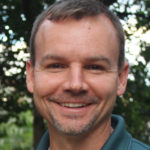 The entrepreneur…Brian Garner grew up in Austin, Texas, obtaining degrees in Mechanical Engineering at the University of Texas in Austin. In 2002 he joined the engineering faculty at Baylor University. He enjoys working with students at Baylor and teaching courses including Statics, Machine Design, Biomechanics, and the capstone Engineering Design course. He is blessed with a wonderful wife, Margie, and four wonderful children, Abigail, Anna, Noah, and Daniel.
The entrepreneur…Brian Garner grew up in Austin, Texas, obtaining degrees in Mechanical Engineering at the University of Texas in Austin. In 2002 he joined the engineering faculty at Baylor University. He enjoys working with students at Baylor and teaching courses including Statics, Machine Design, Biomechanics, and the capstone Engineering Design course. He is blessed with a wonderful wife, Margie, and four wonderful children, Abigail, Anna, Noah, and Daniel.
 The writer…Sarah Lesikar is an Oklahoma native studying English Literature at Baylor University, where she will be working on a thesis over Tolkien’s Trees in the fall. An avid traveler, Sarah has visited 19 countries, but she also enjoys chocolate chip cookies, all things ballet, dog-eared books, and spontaneous taco runs with friends.
The writer…Sarah Lesikar is an Oklahoma native studying English Literature at Baylor University, where she will be working on a thesis over Tolkien’s Trees in the fall. An avid traveler, Sarah has visited 19 countries, but she also enjoys chocolate chip cookies, all things ballet, dog-eared books, and spontaneous taco runs with friends.
The Act Locally Waco blog publishes posts with a connection to these aspirations for Waco. If you are interested in writing for the Act Locally Waco Blog, please email [email protected] for more information.
(Note: This post is part of a series called “Entrepreneurs of Waco.” The series is collaboration between the McLennan Small Business Development Center (SBDC), the Professional Writing program at Baylor University, and Act Locally Waco. The McLennan Small Business Development Center offers technical assistance, business mentoring, training, and resources for all stages of small business. For more information, visit their website: www.mccsbdc.com. To see all the posts in this series, click here: Entrepreneurs of Waco. – ABT)
By Allison Le Grice
In what was once a popular saloon on Third Street in McGregor, Texas, Branda Pavlas and Susie Hughlett have realized their dream of owning a bakery. From Tuesday to Saturday, the small “Open” sign inside Cuppiecakes flashes, welcoming guests to enter the historic brick building to enjoy some savory treats. Like a beacon, it has attracted customers from as far as ninety miles away.
Nine years ago, Susie met Branda at church, and they became inseparable. Often mistaken for sisters, Branda and Susie both stand at just about the same height with short blonde hair, inviting blue eyes, and eager expressions. “We’re completely different though,” Susie mentions. “She’s the doer. She’s made everything possible.” “Oh stop, this place wouldn’t be here without you,” Branda responds.
Susie had some experience with baking and was known around church for bringing her creations for the enjoyment of the congregation. When their pastor asked Susie to bake a cake for an upcoming church event, she invited Branda over to help. This one night of baking led to several more, and as word spread, orders started pouring in. Pretty soon, Branda and Susie’s routine became staying up until three in the morning to finish cake orders while balancing the demand of husbands, children, and full-time jobs.
 As they gained popularity, they decided to officially start a business. Although baking from the comfort of their homes worked, they dreamed of something more. “We wanted to be smart about it,” Branda says. “We knew we were too old for debt, and we didn’t want to get caught up in it for what seemed like some frivolous dream of baking cupcakes.” So Susie and Branda consulted Jane Herndon, a business advisor at the McLennan Small Business Development Center, who helped them plan how they could start a business with their available resources. Finally, their goals appeared to be within reach. In May 2014, they settled on a location in Hewitt, where Susie lives. Unfortunately, they missed their opportunity to sign a lease by mere few hours. To make matters worse, Branda’s husband had a heart attack that same week.
As they gained popularity, they decided to officially start a business. Although baking from the comfort of their homes worked, they dreamed of something more. “We wanted to be smart about it,” Branda says. “We knew we were too old for debt, and we didn’t want to get caught up in it for what seemed like some frivolous dream of baking cupcakes.” So Susie and Branda consulted Jane Herndon, a business advisor at the McLennan Small Business Development Center, who helped them plan how they could start a business with their available resources. Finally, their goals appeared to be within reach. In May 2014, they settled on a location in Hewitt, where Susie lives. Unfortunately, they missed their opportunity to sign a lease by mere few hours. To make matters worse, Branda’s husband had a heart attack that same week.
“As if things weren’t stressful enough, my husband died.”
“But he’s alive now,” Susie jokes, “We call him Lazarus… get it? Because they resurrected him.” In the midst of these unfortunate events, Branda and Susie had faith. “We’re firm believers in God,” Branda says. “I had to constantly remind myself to be patient and trust in His timing. There were multiple times I broke down ugly-crying because nothing seemed to be working, but I reminded myself of all that I had to be thankful for. My family was well, and despite this business not taking off, I still had my job as a high school counselor. If I had quit that to focus more on the business, I wouldn’t have had insurance to help after my husband’s heart attack. That was a reminder of God’s perfect timing. I took a step back and I heard Him say, ‘Just wait.’”
Not long after, a close friend called to tell them about an available building she thought Susie and Branda would like in McGregor, Texas.
 “McGregor? Really?” Branda rolls her eyes. “The three most important things you have to take into consideration when starting a business are one, location. Two, location. And three, location.” With its approximate population of 5,000, they worried that McGregor was not ideal. But there was one thing Branda and Susie knew, church people love to eat and they love to talk. So despite the uncertainty of business from newcomers, they knew their loyal church community would visit their shop and help spread the word. Finally, they would have their own bakery… that’s if the owners of the building decided to lease it to them. “We definitely understand why they were hesitant,” Branda says. “Their main fear was that they’d be wasting their time on a business that was going to flop. It took a lot of convincing, but they agreed to meet with us.”
“McGregor? Really?” Branda rolls her eyes. “The three most important things you have to take into consideration when starting a business are one, location. Two, location. And three, location.” With its approximate population of 5,000, they worried that McGregor was not ideal. But there was one thing Branda and Susie knew, church people love to eat and they love to talk. So despite the uncertainty of business from newcomers, they knew their loyal church community would visit their shop and help spread the word. Finally, they would have their own bakery… that’s if the owners of the building decided to lease it to them. “We definitely understand why they were hesitant,” Branda says. “Their main fear was that they’d be wasting their time on a business that was going to flop. It took a lot of convincing, but they agreed to meet with us.”
“So we brought cupcakes,” Susie adds, “and that’s probably what won them over.”
Today, Cuppiecakes lures customers in with a bright green awning and a huge image of a cupcake. Inside, a display case filled with a variety of flavored cupcakes beckons. Also, in one corner, tables are prepared for one of the many birthday parties Branda and Susie host. Attracting customers is something they no longer worry about. Even on Sundays and Mondays, the days Cuppiecakes is closed to catch up on orders, customers can be found knocking on their door, and on any given day, Branda and Susie can be found baking between 250-350 cupcakes while also completing custom orders for birthday and wedding cakes. Although they tried to wean off of the custom orders, they never stop coming in.
In addition to their baked goods, Branda and Susie have started selling coffee and even sandwiches. Despite this, Cuppiecakes is still best known for its cupcakes, served in small plastic cups. From “Cookies n’ Cream” to “Snowball” coconut cupcakes to “Cup o’ Joe” caramel and coffee cupcakes, Branda and Susie are satisfying all types of cupcake cravings.
“God’s timing really was everything,” says Susie. “It truly is amazing how it all happened.” What started off as two women bonding and baking ultimately led to a booming business.
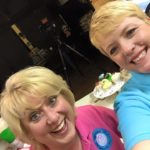 The Entrepreneurs… Susie Hughlett and Branda Pavlas are the owners of Cuppiecakes. Susie is the wife of Kevin Hughlett and mother of Drew (17), Kara (14) and Lindy (11). The family makes their home in Hewitt, and they attend Lorena United Methodist Church. Susie attended the University of Sothern Mississippi on a volleyball scholarship and has been teaching and coaching for 20 years. She now teaches mornings at Woodgate Intermediate as a 5th grade PE teacher and then goes to work at Cuppiecakes in the afternoon. Branda is married to Jake Pavlas, and the couple have 3 children; Jakey (19), Braylin (17), and Jadyn (14). The couple was also blessed to be able to share their home with Ashley Johnson (married to Matthew) who has given them 3 beautiful grandchildren. Branda atteded Texas Tech University and taught English for 16 years before earning a Master’s Degree from Tarleton State University and working as a school counselor for 8 years. She now works full time at Cuppiecakes. Like Susie, Branda and her family also attend Lorena United Methodist Church where they met the Hughlett family. The “Pavlas Hughlett Clan” enjoy dinner together every Sunday night and sometimes take family vacations. Life is good at Cuppiecakes!
The Entrepreneurs… Susie Hughlett and Branda Pavlas are the owners of Cuppiecakes. Susie is the wife of Kevin Hughlett and mother of Drew (17), Kara (14) and Lindy (11). The family makes their home in Hewitt, and they attend Lorena United Methodist Church. Susie attended the University of Sothern Mississippi on a volleyball scholarship and has been teaching and coaching for 20 years. She now teaches mornings at Woodgate Intermediate as a 5th grade PE teacher and then goes to work at Cuppiecakes in the afternoon. Branda is married to Jake Pavlas, and the couple have 3 children; Jakey (19), Braylin (17), and Jadyn (14). The couple was also blessed to be able to share their home with Ashley Johnson (married to Matthew) who has given them 3 beautiful grandchildren. Branda atteded Texas Tech University and taught English for 16 years before earning a Master’s Degree from Tarleton State University and working as a school counselor for 8 years. She now works full time at Cuppiecakes. Like Susie, Branda and her family also attend Lorena United Methodist Church where they met the Hughlett family. The “Pavlas Hughlett Clan” enjoy dinner together every Sunday night and sometimes take family vacations. Life is good at Cuppiecakes!
 The writer…Allison Le Grice is an English student at Baylor University. She is passionate about literature, mental health, and recycling. In her free time, she is most likely binge-watching “Chopped.”
The writer…Allison Le Grice is an English student at Baylor University. She is passionate about literature, mental health, and recycling. In her free time, she is most likely binge-watching “Chopped.”
The Act Locally Waco blog publishes posts with a connection to these aspirations for Waco. If you are interested in writing for the Act Locally Waco Blog, please email [email protected] for more information.
(Note: This post is part of a series called “Entrepreneurs of Waco.” The series is collaboration between the McLennan Small Business Development Center (SBDC), the Professional Writing program at Baylor University, and Act Locally Waco. The McLennan Small Business Development Center offers technical assistance, business mentoring, training, and resources for all stages of small business. For more information, visit their website: www.mccsbdc.com. To see all the posts in this series, click here: Entrepreneurs of Waco. – ABT)
By Kellie Fawcett
As you enter the Uncommon Healthcare office you don’t see tile floors or fluorescent lights. There aren’t dozens of people in the waiting room sniffling while they flip through year-old lifestyle magazines. There isn’t a TV playing cooking show reruns. The carpeted waiting area includes plush chairs and a soothing water feature. Complimentary drinks are available. In fact, if anyone is in the waiting area, it is because he or she has arrived early. When Dr. Macik schedules your appointment for 10:30, she’ll be with you at 10:30.
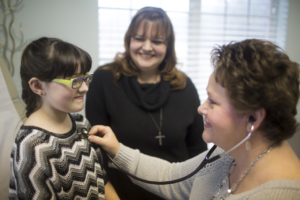 Dr. Felicia Macik, the founder, owner, and physician at Uncommon Healthcare, is the only direct primary care family physician between Austin and Dallas. When she greets her patients, she is not in a hurry. She greets each one with a smile and usually a hug. She is in casual clothes, not scrubs. The only way you would know she is a doctor is the stethoscope draped around her neck.
Dr. Felicia Macik, the founder, owner, and physician at Uncommon Healthcare, is the only direct primary care family physician between Austin and Dallas. When she greets her patients, she is not in a hurry. She greets each one with a smile and usually a hug. She is in casual clothes, not scrubs. The only way you would know she is a doctor is the stethoscope draped around her neck.
Aside from being owner, founder, and physician at Uncommon Healthcare, she is also the accountant, manager and marketer. None-the-less, when you meet with Dr. Macik in her office she sits next to you, ignoring the office chair she has at her desk. In doing so she lets you in on her secret to success: relationships.
Dr. Macik used to work for a hospital system but left employed practice after 17 years.” She had expectations of herself as a physician, the hospital system had expectations of her as an employee, and the insurance companies had their own expectations set by government regulation. This presented an obvious problem. Her solution: to pursue a new career path that she discovered via talk radio.
“My husband actually discovered it,” she says chuckling, “I was miserable in the system and was trying to figure out if I was going to leave medicine. I really thought, ‘If I can’t find another way to do this I’m not going to be a physician any more. I don’t want to continue to do this for the rest of my career.’ My husband was listening to talk radio and some physicians came on. They were leaders in the nation in direct care and were talking about their model of practice and how physicians were looking into this. So he came home and said, ‘Felicia, oh my gosh, you have got to listen to this and check this out. This is so who you are, this is exactly what you need to do.’ And so that was on a Friday afternoon and I will never forget, I went home and the entire weekend listened to podcasts about direct care and listened to those guys.”
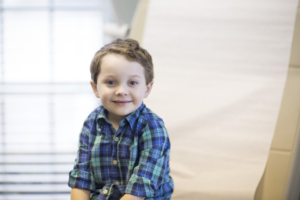 This was a week before her sons’ spring break. She sat the family down and asked them to forgo their previously planned ski trip in order to road trip to Wichita, Kansas, to meet with the direct care physicians from the radio.
This was a week before her sons’ spring break. She sat the family down and asked them to forgo their previously planned ski trip in order to road trip to Wichita, Kansas, to meet with the direct care physicians from the radio.
After meeting with six other well-known primary care physicians, interviewing their patients, and extensively researching direct primary care, Dr. Macik learned that roughly half of direct primary practices fail the first year. “So going into it I knew that was the case and that was a risk for me and my husband also knew. But, I also knew that this is who I am as a doctor.”
Dr. Macik feels strongly that healthcare should not be a source of physical or financial stress. Earlier this year she partnered with another entrepreneur to establish a pharmacy program to help her patients receive prescription medication at wholesale prices. “I have a patient who is a small business person. She just launched a business and her son developed a seizure disorder and the medication was so expensive that they literally could not afford it. We put them on the pharmacy program and now they’re only paying $47 per month for the medicine that was going to be right around $300 per month retail. So yeah, its life changing…”
At Uncommon Healthcare patients pay a monthly fee to receive high quality care tailored to each specific patient. Patients don’t go through insurance companies or hospital hierarchy. They are promised at least 30 minutes of personal questions and care each time they see Dr. Macik. Hospitals discourage their doctors from spending more than 10 minutes at a time with a single patient.
Dr. Macik makes herself available 24/7 through an after-hours phone number that allows patients to text pictures or Skype her if there’s an emergency. “I had a patient that had an abscess and she sent me pictures of it on my phone and those pictures dropped right into her chart so it’s all integrated. It prevented her from having to go to the emergency room because she was able to access me. We were off on Good Friday and I was kayak fishing with my son, and I was on my phone treating an abscess while we were kayak fishing because I can do that.”
Right now, Dr. Macik is living her dream. She has a loving and supportive family, she has started her own business, she is doing what she loves, and she’s succeeding in it. “It is still very stressful, but I know that if I stayed in the system it was never going to get better… this at least offers me the opportunity to ultimately have stability and to have satisfaction with what I am doing every day.” Success for Dr. Felicia Macik is not about cutting costs or maintaining a strict schedule, it’s about loving and serving her patients.
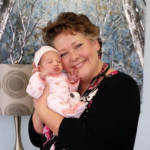 The entrepreneur… After graduating Summa Cum Laude from Tarleton State University with a BS in Biology, Dr. Felecia Macik attended medical school at the UNT Health Science Center in Fort Worth. She completed family medicine residency training at UTMB Conroe and then a women’s health fellowship at the University of Tennessee at Memphis. She previously served on the faculty of the Texas A&M Health Science Center and as the Assistant Program Director of Texas A&M’s Brazos Family Medicine residency training program. Dr. Macik has received numerous awards including being twice named Faculty of the Year and being honored with the Waco Tribune Herald’s Reader’s Choice Award for primary care physicians. She has a passion for patient care and has enjoyed serving the patients of this area for over 10 years. Uncommon Healthcare, 1000 State Hwy 6, Suite 100 Waco Texas 76712, 254-339-1360, www.uncommonhealthcare.com.
The entrepreneur… After graduating Summa Cum Laude from Tarleton State University with a BS in Biology, Dr. Felecia Macik attended medical school at the UNT Health Science Center in Fort Worth. She completed family medicine residency training at UTMB Conroe and then a women’s health fellowship at the University of Tennessee at Memphis. She previously served on the faculty of the Texas A&M Health Science Center and as the Assistant Program Director of Texas A&M’s Brazos Family Medicine residency training program. Dr. Macik has received numerous awards including being twice named Faculty of the Year and being honored with the Waco Tribune Herald’s Reader’s Choice Award for primary care physicians. She has a passion for patient care and has enjoyed serving the patients of this area for over 10 years. Uncommon Healthcare, 1000 State Hwy 6, Suite 100 Waco Texas 76712, 254-339-1360, www.uncommonhealthcare.com.
 The writer…Kellie Fawcett graduated from Baylor in 2016 with a Bachelor of Business Administration in Marketing. She is from Brentwood, Tennessee. While at Baylor she participated in Baylor Buddies and Baylor women’s Lacrosse.
The writer…Kellie Fawcett graduated from Baylor in 2016 with a Bachelor of Business Administration in Marketing. She is from Brentwood, Tennessee. While at Baylor she participated in Baylor Buddies and Baylor women’s Lacrosse.
The Act Locally Waco blog publishes posts with a connection to these aspirations for Waco. If you are interested in writing for the Act Locally Waco Blog, please email [email protected] for more information.
